- Home
- Sharyn McCrumb
The PMS Outlaws: An Elizabeth MacPherson Novel Page 10
The PMS Outlaws: An Elizabeth MacPherson Novel Read online
Page 10
Elizabeth nodded. She could indeed picture Hillman Randolph as a federal agent: no people skills required. The customer is always wrong.
“Yeah, I knew that place well,” the old man was saying. “Belonged to a fellow named Dolan.”
Elizabeth smiled. “Yes, I’ve heard about him. He’s quite a character. I haven’t met him yet.”
“Well, he always was a twisty son of a gun, but unless he figured out a way to outwit the Grim Reaper, I don’t think you’re going to get a chance to meet old Jack Dolan. He was a personal crusade of mine. I wanted to nail him so bad I could taste it. We put him away for a couple of months once on a tax charge, but that was nothing. Never had the chance to do any better than that. Jack Dolan went up in flames in a car wreck in … oh … 1953, I think it was.”
Elizabeth stared. “But that’s impossible. He’s still living in that house. My brother said so!”
“Your brother says he lives with the late Jack Dolan.” Mr. Randolph gave her a pitying smile. “And you’re the family member they locked up for being crazy?”
The real estate transaction moved swiftly, thanks to the large down payment made possible by liquidating a portion of Bill’s stock portfolio, and even more to Sunshine Properties’ pressing desire to be rid of their white elephant of a mansion. The bank president, who knew Bill socially, expedited the paperwork for the mortgage, and permission was given for the purchasers to begin to clean the house and move in their possessions.
A. P. Hill was still out of town. She phoned in once a day for messages, and Bill gave her progress reports about the house, but she wasn’t very forthcoming about the case she was working on. “It’s going to take longer than I expected,” she told Bill. “Can you manage without me?”
Since A. P. Hill routinely worked six-day weeks and twelve-hour days, and since she had not taken a vacation since the firm opened for business, Bill assured her that he could manage without her. It was a nuisance for her to be gone when there was so much work to do on the house, but he would have to make the best of it. Besides, if Powell Hill had a fault, it was a tendency to be opinionated and dictatorial. This way after Bill made all the decisions, he could argue with perfect truth that he would have consulted her about, say, the dining room wallpaper, but she hadn’t been around to give him the benefit of her wisdom.
Bill and Edith had taken to spending evenings and weekends getting the place ready to become their new office complex. They gave the downstairs walls a fresh coat of paint, scrubbed down the floors and the woodwork, and began moving files and bits of office furniture into the cavernous old parlor, which swallowed up their meager possessions and still looked empty.
“It’s like putting peas in a pumpkin,” Edith remarked. She leaned on the mop, and surveyed the room with a critical eye. “Not only do we need more furniture, we need better furniture. These beat-up metal desks just ruin the ambiance.”
“It was all we could afford,” Bill reminded her. He was perched atop a stepladder, putting new lightbulbs in the brass chandelier. “And now that we’ve bought this place, it’s still all we can afford. Just be glad they’re paid for.”
Edith frowned. “Maybe we could put them close to the walls, and arrange plants in front of them to hide the dents.”
“Can we afford plants?”
“I have a shovel. What time does the park close?”
Bill frowned. “I don’t have time to take on any new larceny cases just now, thank you. Maybe I’ll hint to Mother for a house-warming gift of greenery.”
Bill was screwing in another lightbulb when Mr. Jack wandered in, nibbling on a Popsicle he’d liberated from Edith’s refreshment stash in the freezer. “How’s it going, boys?” he asked genially, peering up at Bill.
The lightbulb did not work. “It’s not the bulbs,” muttered Bill, indicating the still unlit light fixture. “I think the wiring is bad on this thing.”
Mr. Jack put his hand to his ear and called out, “Say what?”
“I said: We need a new chandelier!” Bill yelled back.
“Oh,” said Mr. Jack, digesting this information. He shook his head. “Nope. Nope. I don’t agree with you there.”
“You don’t?”
“Nope. Give you three reasons. Number one: You can’t afford one. Number two: None of us knows how to play one. And number three: What you really need in this room is a new light fixture!”
Before Bill could find out if Mr. Jack was putting him on, the old man ambled out again, humming to himself.
“I hope he doesn’t start answering the phone,” said Edith.
As if in answer to her remark, Bill’s cell phone, propped up on the mantelpiece, began to ring.
“Can you get that?” he asked from the top of the ladder.
Edith set down the mop and lunged for the phone. “Bill MacPherson’s cell phone,” she said into the receiver. “I’m not an answering machine. If you want him, say so.” She listened intently for a few moments, and then said, “We’re fine. Well, we’re getting enough exercise anyhow. How about yourself?”
“Who is it?” asked Bill, easing down the ladder.
“It’s your sister.” Edith cupped her hand over the mouthpiece. “I didn’t think people in asylums were allowed to use the telephone.”
“She’s a voluntary patient,” Bill reminded her. “She isn’t dangerous. Hello?”
“Hi, Bill.” Elizabeth sounded tired. “I got your letter. Thanks for the picture of the house. I can’t wait to see it in person.”
“It is pretty amazing, isn’t it?” said Bill. In his voice pride of ownership struggled with modesty. “We just happened to be in the right place at the right time.”
It occurred to him that burbling about one’s own good fortune is extremely bad form when speaking to someone newly bereaved. “Well, never mind that,” he said. “The house needs repairs, and we have a lot of work ahead of us. We’re scrubbing a few square miles of floors. I have aches in muscles I didn’t know I had. But how are you?”
“Oh, you know … one day at a time. Don’t let’s talk about that.”
“Is the therapy helping?”
“It’s hard to tell, Bill. I take the pills, and I still feel like screaming, but who knows how bad I’d feel if I weren’t taking them? … Anyhow, that is not what I called about.”
“I’m sorry I haven’t been able to visit you, but—”
“Bill. Shut up.” There was a gratifying silence at the other end of the phone. Elizabeth took a deep breath and plunged on. “I wanted to talk to you about the old man who lives in your house. Have you asked to see any identification?”
“Umm … no.” She could hear the bewilderment in Bill’s voice.
“Well, could you?”
After a long pause, Bill said, “I don’t think he has a driver’s license. The Department of Motor Vehicles gets very nervous when people over ninety take to the highway.”
Elizabeth sighed. She was going to have to explain. “Look, Bill, ask Mr. Dolan if he remembers a man named Hillman Randolph. You’d better write it down. Mr. Randolph isn’t ninety, but he’s pretty old, and he says that he knew the fellow who built your house back in the nineteen forties.”
“Really? Where did you meet him?”
“In here. That’s not important. Never mind about that.” Elizabeth thought the time had come to talk very fast to forestall the inevitable and uncomfortable questions that were about to arise. “According to Hillman Randolph, Jack Dolan died in a wreck in the Fifties.”
Another long pause. “I don’t think he’s a ghost,” said Bill mildly. “He eats Popsicles.”
“Of course he’s not a ghost, Bill! But he may be an imposter.”
“With rubber makeup, you mean? Like Dustin Hoffman in Little Big Man? This guy deserves an Academy Award, then, because he looks every single minute of ninety-two, and I’ve seen him up close, and I’d swear it’s really skin.”
Elizabeth sighed. Trying to explain things to Bill could drive you craz
y even if you weren’t already in a mental institution. Stay calm, she told herself. Hysteria negates your argument. “The substitution may have happened a long time ago,” she said quietly. “At the time of the car wreck Mr. Randolph mentioned.”
Something suddenly occurred to Bill. “Mr. Randolph? Isn’t your friend there Dr. Randolph?”
“No. He’s not on staff here. He’s a patient.”
“I see.” Bill’s voice took on the warm, comforting tones of one who has just realized what is going on, and who will now agree with anything and everything you say.
Elizabeth winced. “I am not hallucinating, Bill.”
“No. Of course not. You sound great. Just like your old self! And, hey, thanks for this hot tip. I’m going to look into it first chance I get. Of course, Edith and I have a lot of painting and furniture moving to do just now, and Powell is in Richmond taking her sweet time over that corporate case of hers, but just as soon as things settle down here, I’ll get right on it.” Elizabeth recognized his tone of voice. It was the one he had used to discuss the Easter Bunny with her when she was four. There was no reasoning with him now. His mind had slammed shut.
“You are taking your medicine on schedule, aren’t you?”
“Yes, Bill. In fact, I think it’s time for a pill right now. Goodbye.”
Bill switched off the phone and leaned wearily against the mantelpiece. “Poor kid,” he said to Edith. “She’s lost touch with reality.”
Chapter 7
“A paranoid-schizophrenic is
a guy who has just found
out what’s going on.”
—William Burroughs
Elizabeth was in art therapy again. She stood before the easel in a few moments of silent contemplation before she set to work. As usual she began her charcoal drawing of a storm-tossed boat, but this time among the foam-capped breakers, she sketched in the head of a seal. In this view of the shipwreck, pictured a thousand times in her imaginings waking and sleeping, the boat was far in the distance, under dark clouds, like fists in the sky above it. Now the face of the seal loomed large in the foreground of the sketch, peering out at the viewer with sad, knowing, human eyes.
Long ago the Scots and the Norsemen believed that seals were drowned sailors held forever in the ocean that was life—and death—for them. For this reason, they considered it unlucky for anyone to kill a seal. Her late husband, Cameron, who was a marine biologist, had also hated those who killed seals, but he called his beliefs “ecology,” and his opinions on seals had nothing to do with mysticism. Still, he had told her the old Scots stories of the drowned souls who came back as seals, and of the other seal creatures, the Selkies, who took the form of seals while they were in the ocean, but who transformed themselves into men when they came on dry land to marry a human maiden. After a few years together, the Selkie lover would leave his human bride and return to the sea, to his other form and his other life in the depths.
“Interesting that people once believed seals were human,” Cameron had told her once. “I suppose it’s the eyes that made them think of it. They do seem quite sentient when they look at you with that long-lashed stare. The odd bit is that seals were once land creatures—a long time ago, of course. Much too far back for our ancestors to have seen it, of course, but once upon a time the pinnipeds lived on dry land. If you dissect a seal, you’ll find that attached to the skeleton it has tiny, atrophied leg bones under the flesh near the tail.”
“So they are slowly emerging from the sea and turning into land animals?” Elizabeth had asked.
“No,” said Cameron. “They’ve thought better of it. Seals seem to be at midpoint now between sea creature and land animal, but at some point they changed their minds about making the transition, I suppose. Each generation of seal spends more time in the water than the one before it, and some day—past the era of man, I suppose—they will complete the transformation and go back to the sea for good. Isn’t it funny that people sensed the transformation? They got the details wrong, that’s all.”
Elizabeth could imagine an abandoned wife or the widow of a drowned sailor standing on the beach, staring into the eyes of a seal, searching for a spark of recognition, wanting to believe that some part of her loved one remained. She wondered if such a belief would bring more consolation than the knowledge that one’s man was forever lost. If you believed such a thing in these enlightened times, you would be thought mad. Well, here she was in a madhouse: surely she was entitled to the consolation of mysticism, and yet, for all the comfort it would have given her, she could not believe in any thing so gentle, so comforting as a transmigration from man to seal. Cameron was gone. Apparently her problem was that she was unable to be crazy enough. Still she dreamed of seals, and their sad eyes stared at her, as if at any moment they would speak and put an end to her pain of not knowing.
She was staring into the sad eyes of the seal when Rose appeared behind her. “Back to boating accidents, huh?” she said. “Well I have some news that might take your mind off your troubles. They sent me in to tell you that you have a visitor.”
A. P. Hill seldom returned to her alma mater: all her friends had left when she did. Team sports did not interest her, and she had graduated too recently to be troubled by invitations for class reunions. She remembered her years in Williamsburg as neither happy nor unhappy. She had existed in a haze of hard work, punctuated by punishing physical workouts to keep her senses sharp. Now her memories of the city fit into an impressionistic collage of library stacks, bike paths, and autumn scenes. The old colonial capital held its elegance and charm in the suspended animation of life support, thanks to the efforts of a well-endowed charitable foundation that ensured that the buildings of Old Williamsburg were preserved with no taint from the present century to sully the dream of the past. Memories of college were much the same. You expected your classmates to stay frozen in time, in the image you had of them during your student days. When one of them achieves tabloid notoriety, it disturbs not only the present, but also the past, challenging your memories of how things were and making you wonder what else you missed.
The drive from Richmond to Williamsburg takes less than an hour on I-64 east, traffic permitting. A. P. Hill traveled the distance without noticing her surroundings, so intent was she upon dredging up memories of Purdue from undergraduate days.
What could she remember about Purdue? She pictured the sharp little face under a strawlike thatch of blonde hair, and the black outfits that Purdue had invariably worn. Had she dated anybody back then? A. P. Hill could not remember Purdue ever going out with anyone, but she had taken an interest in the young men who used to call the pay phones on the halls in the dorm in search of a blind date. After several of their hallmates encountered lechers or losers in the blind-date lottery, P. J. Purdue had posted a list by the phone, describing the usual callers by name and detailing their objectionable qualities (“Breath smells like Lysol.”) When some of the callers got wise to the loser list and began using aliases, Purdue calmly inserted the callers’ current aliases beside the original names.
So the anger was there, even in her undergraduate days. But why? Where had it come from? Did it matter? In the back of her mind the seedlings of a plea of mitigating circumstances began to take shape.
A. P. Hill parked the car and began walking the familiar paths of campus, heading more or less for the library because she instinctively searched for the answers to things in the nearest library, but before she could reach it, her cell phone rang.
“A. P. Hill,” said Powell, feeling the spell of the past evaporate as she spoke.
After a short pause a familiar voice said, “This is Katy DeBruhl. Where are you, Powell?”
“Williamsburg. Why?” Something in Katy’s voice told her that this was not a social call.
“Are you coming back to Richmond this evening, or are you on your way back to Danville?”
“I’m not sure, Katy. Why?”
Another pause. “Lewis Paine asked me to call
you,” Katy said at last. “Do you remember that case we were talking about at dinner the other night? The one where the woman lawyer ran away with a client?”
“What about it?”
“Well, it seems the pair has struck again. This time their victim was a well-to-do banker somewhere west of Memphis. Anyhow, after that police department took his statement, they contacted Richmond.”
A. P. Hill felt a prickling on the back of her neck. Here it comes, she thought, although she had no idea what was coming. Just that it wasn’t good. “Why did they contact Richmond, Katy?”
“Well, it seems that one of the pair told the banker that she was a Virginia lawyer. He was quite clear about it. She said that her name was A. P. Hill.”
Powell clenched her teeth.
“We thought it seemed rather a strange coincidence, your name turning up like that after we’d discussed the case. You didn’t mention that you knew them.”
“Acquaintances. I haven’t seen Purdue in years. Not since law school.”
“Well, of course, we know it wasn’t you in that robbery, Powell. You’ve been in court here in Richmond every day this week, but Lewis did think it was interesting that you should be talking about the case, and then one of the fugitives uses your name for an alias. He’d like you to come in and talk to him about it—at your earliest convenience. And you know what that means.”
“I know.” Powell figured she had about twelve hours to turn up in Lewis Paine’s office before he sent someone after her—politely, of course, but she would not be given the option of declining the invitation.
“I have some business to finish here in Williamsburg, Katy. Tell Paine I’ll be back at my hotel at nine o’clock tonight. He’s welcome to come and see me there, but I warn you that I won’t be any help.”
“I’ll let him know,” said Katy. “Oh, and Powell, I’d be glad to come along, if you think you need to be represented by counsel.”

 Elizabeth MacPherson 07 - MacPherson’s Lament
Elizabeth MacPherson 07 - MacPherson’s Lament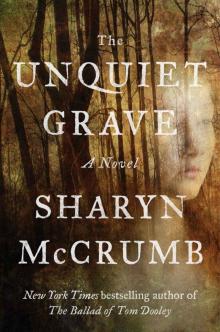 The Unquiet Grave: A Novel
The Unquiet Grave: A Novel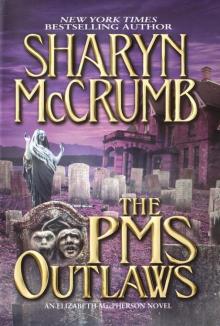 The PMS Outlaws: An Elizabeth MacPherson Novel
The PMS Outlaws: An Elizabeth MacPherson Novel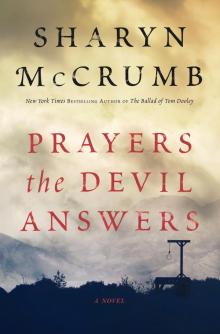 Prayers the Devil Answers
Prayers the Devil Answers Paying the Piper
Paying the Piper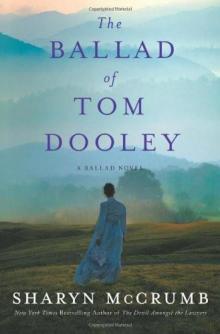 The Ballad of Tom Dooley: A Ballad Novel
The Ballad of Tom Dooley: A Ballad Novel Highland Laddie Gone
Highland Laddie Gone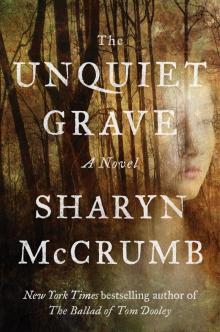 The Unquiet Grave
The Unquiet Grave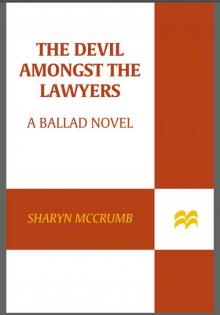 The Devil Amongst the Lawyers
The Devil Amongst the Lawyers The Windsor Knot
The Windsor Knot The Hangman's Beautiful Daughter
The Hangman's Beautiful Daughter MacPherson's Lament
MacPherson's Lament The Ballad of Tom Dooley
The Ballad of Tom Dooley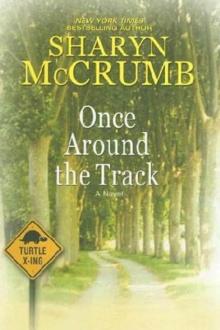 Once Around the Track
Once Around the Track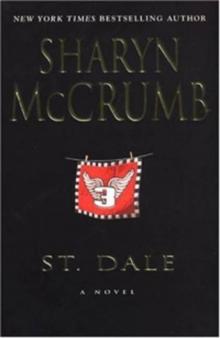 St. Dale
St. Dale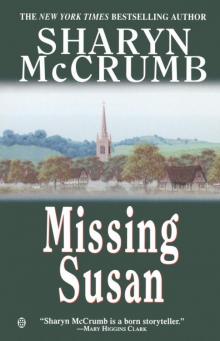 Elizabeth MacPherson 06 - Missing Susan
Elizabeth MacPherson 06 - Missing Susan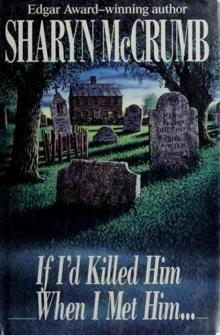 If I'd Killed Him When I Met Him…
If I'd Killed Him When I Met Him…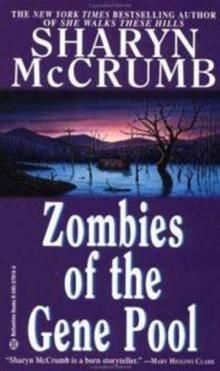 Zombies of the Gene Pool
Zombies of the Gene Pool Bimbos of the Death Sun
Bimbos of the Death Sun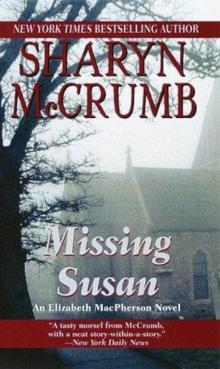 Missing Susan
Missing Susan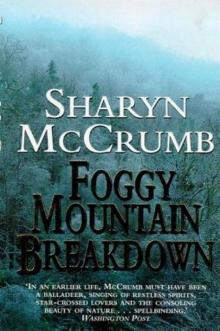 Foggy Mountain Breakdown and Other Stories
Foggy Mountain Breakdown and Other Stories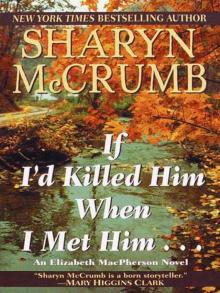 If I'd Killed Him When I Met Him
If I'd Killed Him When I Met Him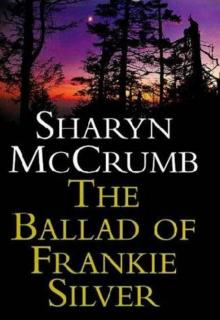 The Ballad of Frankie Silver
The Ballad of Frankie Silver Lovely In Her Bones
Lovely In Her Bones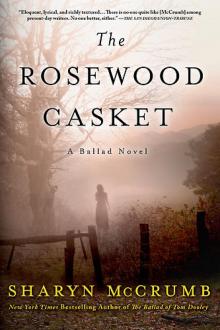 The Rosewood Casket
The Rosewood Casket King's Mountain
King's Mountain